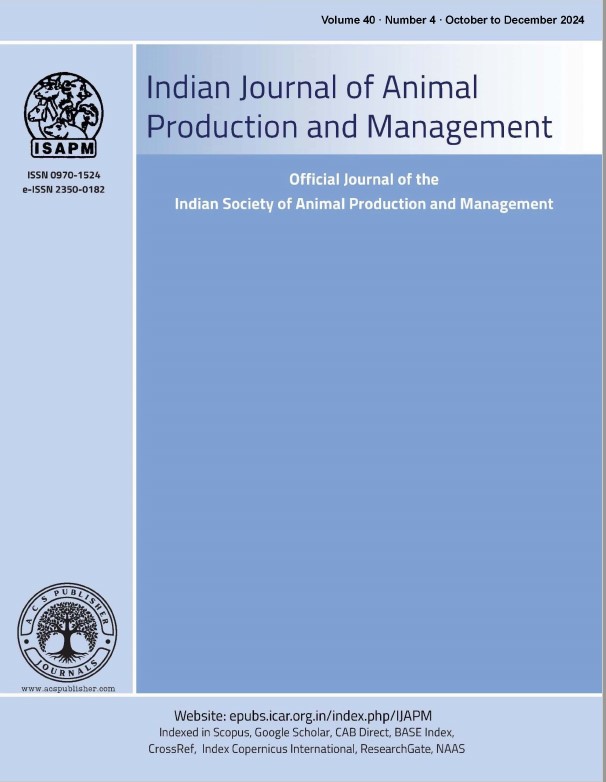Farmers field school: An appropriate extension method for transfer of technologies and empowering dairy farmers: a case study from central Gujarat
DOI:
https://doi.org/10.48165/ijapm.2021.37.1-4.4Keywords:
Adoption, Dairy farming, FFS, Impact, Knowledge, RespondentsAbstract
A study was conducted to assess the impact of Farmer Field School on transfer of technologies and empowering dairy farmers of Panchmahal district of central Gujarat, India. ICAR – KVK, Panchmahal established Farmer Field Schools (FFSs) at the village level for providing a platform for knowledge building and sharing agro-ecology where farmers of cluster villages meet, interact and find solutions about their problems locally. The present study was conducted on Farmer Field School for clean and quality milk production techniques at KVK, Panchmahal. The results of the study revealed the means of knowledge and adoption index 38.79 and 95.55 and 27.97 and 83.09 percent for pre and after FFS, respectively. The impact of FFS was found to be 55.94 percent over the existing knowledge and adoption by the trained respondents which were found to be substantial increase over the pre FFS respondents on various aspects of improved clean and quality milk production techniques after intervention of Krishi Vigyan Kendra, Panchmahal. The average milk yield of cow and buffaloes was recorded 10.49±0.41and 7.88±0.39 kg per day, respectively after technological interventions under Farmers Field School which was higher as compared to (8.11±0.57 and 6.37±0.49 kg per day) traditional dairy farming, respectively. The average increase in milk production of cow and buffaloes was recorded 33.12 and 27.32 percent, respectively after conducting FFS as compared to traditional system. Based on the study, it may be inferred that the Farmer Field School as a model was found the most appropriate extension tool for improving in clean and quality milk production which will not only be helpful in production of quality milk but also improve the socio-economic conditions of the farming community.

